new posts in all blogs
Viewing: Blog Posts Tagged with: Emily Bronte, Most Recent at Top [Help]
Results 1 - 13 of 13
How to use this Page
You are viewing the most recent posts tagged with the words: Emily Bronte in the JacketFlap blog reader. What is a tag? Think of a tag as a keyword or category label. Tags can both help you find posts on JacketFlap.com as well as provide an easy way for you to "remember" and classify posts for later recall. Try adding a tag yourself by clicking "Add a tag" below a post's header. Scroll down through the list of Recent Posts in the left column and click on a post title that sounds interesting. You can view all posts from a specific blog by clicking the Blog name in the right column, or you can click a 'More Posts from this Blog' link in any individual post.

By: Maryann Yin,
on 12/8/2015
Blog:
Galley Cat (Mediabistro)
(
Login to Add to MyJacketFlap)
JacketFlap tags:
People,
Resources,
Emily Bronte,
Charlotte Bronte,
Virginia Woolf,
Charles Dickens,
Mary Shelley,
William Makepeace Thackeray,
George Eliot,
Add a tag
 The team at BBC Culture asked 82 book critics to name their favorite British fiction books. All of the participants who were polled do not reside in the United Kingdom; they come from the United States, continental Europe, Asia, Africa, and Australia.
The team at BBC Culture asked 82 book critics to name their favorite British fiction books. All of the participants who were polled do not reside in the United Kingdom; they come from the United States, continental Europe, Asia, Africa, and Australia.
Here’s more from the BBC: “Each who participated submitted a list of 10 British novels, with their pick for the greatest novel receiving 10 points. The points were added up to produce the final list.”
Altogether, this international group of bibliophiles selected a total of 228 books. Below, we’ve listed the top 10 titles; click on the links to download free eBooks. Did any of your favorites make the cut?
01. Middlemarch by George Eliot (1874)
02. To the Lighthouse by Virginia Woolf (1927)
03. Mrs. Dalloway by Virginia Woolf (1925)
04. Great Expectations by Charles Dickens (1861)
05. Jane Eyre by Charlotte Brontë (1847)
06. Bleak House by Charles Dickens (1853)
07. Wuthering Heights by Emily Brontë (1847)
08. David Copperfield by Charles Dickens (1850)
09. Frankenstein by Mary Shelley (1818)
10. Vanity Fair by William Makepeace Thackeray (1848)

By: SoniaT,
on 3/16/2015
Blog:
OUPblog
(
Login to Add to MyJacketFlap)
JacketFlap tags:
Books,
Literature,
Wuthering Heights,
emily bronte,
OWC,
oxford world's classics,
*Featured,
#owcreads,
Oxford World's Classics Reading Group,
Add a tag
Centuries after its 1847 publication, Wuthering Heights, Emily Brontë's breathtaking literary classic, remains a seminal text to scholars, students, and readers around the world. Though best known for its depiction of romance between Heathcliff and Catherine Earnshaw, it is also largely multidimensional, grappling with themes such as religious hypocrisy, the precariousness of social class, and the collision of nature and culture. But how much do you know about this famous work of English literature?
The post How much do you know about Wuthering Heights? [quiz] appeared first on OUPblog.

By: Alice,
on 2/28/2015
Blog:
OUPblog
(
Login to Add to MyJacketFlap)
JacketFlap tags:
*Featured,
helen small,
Oxford World's Classics Reading Group,
Books,
Literature,
Wuthering Heights,
emily bronte,
OWC,
Oxford World's Classics,
Add a tag
Catherine’s removal from the plot (other than as a haunting presence in the background, much less potent hereafter than the waif-like child ghost whose wrist Lockwood rubs back and forth across the broken window glass till the blood runs freely (p. 21)) has seemed to some readers to weaken the second half of the novel. One modern critic has suggested, indeed, that the whole of the second-generation narrative was an afterthought.
The post Emily Brontë, narrative, and nature appeared first on OUPblog.

By: Amy Jelf,
on 2/18/2015
Blog:
OUPblog
(
Login to Add to MyJacketFlap)
JacketFlap tags:
Literature,
Oxford World's Classics,
emily bronte,
OWC,
Oxford World's Classics Reading Group,
Heathcliff,
*Featured,
#owcreads,
Wuthering Heights,
Catherine Earnshaw,
Add a tag
Are you part of the Oxford World's Classics Readfing Group? The following is an extract from the current selection, Wuthering Heights, by Emily Brontë, taken from volume II, chapter II, pages 147-148 in the Oxford World's Classics edition.
The post “You said I killed you — haunt me, then!” An extract from Wuthering Heights appeared first on OUPblog.

By: KatherineS,
on 2/11/2015
Blog:
OUPblog
(
Login to Add to MyJacketFlap)
JacketFlap tags:
Arts & Humanities,
#owcreads,
Oxford World's Classics Reading Group,
Heathcliff,
Literature,
Wuthering Heights,
emily bronte,
Oxford World's Classics,
reading group,
*Featured,
victorian literature,
helen small,
Add a tag
Last week we announced the launch of the Oxford World’s Classics Reading Group, and the first book, Wuthering Heights by Emily Brontë. Helen Small, editor of the Oxford World’s Classics edition of the book, has put together some helpful discussion questions that will help you gain a deeper understanding of the text as you read it and when you finish it.
1. Even the early critics who were revolted or dismayed by the violence of Wuthering Heights admitted the ‘power’ of the novel. What seems to you to be the best explanation of that power?
2. How ‘moral’ a story is Wuthering Heights? More specifically, is moral justice a concern in the shaping of the story and its characters?
3. Catherine Earnshaw comes across as many things: passionate, rebellious, full of laughter and of scorn for others, driven by social ambition but careless of social expectations, self-seeking but ultimately self-destructive (willing herself to die). Is it a problem for our reading of her that we never hear her voice unmediated? How far did you feel inclined to trust what you are told of her by others?

4. One critic has speculated that the ‘second generation’ story was an afterthought, written to fill the gap created in a three volume set (Wuthering Heights, Charlotte’s The Professor, Anne’s Agnes Grey) after Charlotte withdrew. How cogently does the Catherine/Linton/Hareton narrative seem to you to fit with the first half of the novel?
5. Does Heathcliff’s story hold the novel together? Does it make sense to read it as, in its own fashion, a Bildungsroman (telling the story of the building of a character over time, through education and experience)?
6. Wuthering Heights is in many respects lawless, but it is also a novel in which the law (and what people do with it) is crucial to the plot. What do you make of its interest in, especially, property law? How does it compare with other Victorian novels you may have read (Dickens? Trollope?) which have an interest in how the law seeks to regulate ownership of land, houses, even people (wives and children)?
7. This is a famously difficult book to place within any wider story about the development of the English novel. Does it seem to you a ‘bookish’ work or primarily an oral tale?
8. How important is supernaturalism to the novel’s effects? And how closely tied to religion is the supernaturalism explored here?
Heading image: Top Withens by John Robinson. CC BY 2.0 via Wikimedia Commons.
The post Discussion questions for Emily Brontë’s Wuthering Heights appeared first on OUPblog.


By: KatherineS,
on 2/3/2015
Blog:
OUPblog
(
Login to Add to MyJacketFlap)
JacketFlap tags:
Books,
Literature,
Wuthering Heights,
emily bronte,
OWC,
Oxford World's Classics,
*Featured,
helen small,
Arts & Humanities,
#owcreads,
Oxford World's Classics Reading Group,
Add a tag
We’re excited to announce the launch of the Oxford World’s Classics Reading Group, an online group for everyone who is interested in reading and discussing the classics. The Oxford World’s Classics social media channels will provide a forum for conversation around the chosen book, and every three months we will choose a new work of classic literature for the group to read. The editor of the Oxford World’s Classics edition of the book will provide literary context, discussion questions, and lead an online question-and-answer session around the book.

We’re starting our first season of the Oxford World’s Classics Reading Group with Wuthering Heights, Emily Brontë’s classic love story that incorporates themes such as social class, death and the afterlife, and the supernatural. The setting, a remote farmhouse on the moors of Northern England, is bleak, harsh, wild, and unpredictable, reflecting many of the novel’s characters. Helen Small, Professor of English Literature at the University of Oxford and editor of the Oxford World’s Classics edition of Wuthering Heights, will be leading the Reading Group this season.
If you have a classic that you’ve always wanted to read, let us know and we’ll consider it for next season. In this video, Oxford University Press staff from offices all over the world talk about classic books they’ve always wanted to read but haven’t yet:
You can follow along, and join in the conversation by following us on Twitter and Facebook, and by using the hashtag #OWCreads.
Heading image: Old books. CC0 via Pixabay.
The post Announcing the Oxford World’s Classics Reading Group appeared first on OUPblog.


By: Emily St. John Mandel,
on 9/3/2014
Blog:
PowellsBooks.BLOG
(
Login to Add to MyJacketFlap)
JacketFlap tags:
Emily Bronte,
Philip Roth,
David Mitchell,
Emily St. John Mandel,
Jennifer Egan,
Julio Cortazar,
Powell's Q&A,
authorpod,
Lars Iyer,
Dan Chaon,
John Edwar Williams,
Add a tag
Describe your latest book. My new novel is called Station Eleven. It's about a traveling Shakespearean theatre company in a post-apocalyptic North America. The book moves back and forth in time between the years just before a devastating flu pandemic brings about the collapse of civilization as we know it, and a time 20 years [...]
By: C. C. Gevry,
on 4/9/2014
Blog:
The Children's and Teens' Book Connection
(
Login to Add to MyJacketFlap)
JacketFlap tags:
Emily Bronte,
Charlotte Bronte,
Middle Grade books,
Michaela MacColl,
The Children's and Teens Book Connection,
Always Emily,
Mysteries,
Young Adult fiction,
Teen fiction,
Historical fiction,
Tween fiction,
Chronicle Books,
Add a tag
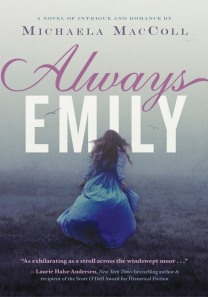
Emily and Charlotte Brontë are about as opposite as two sisters can be. Charlotte is practical and cautious; Emily is headstrong and imaginative. But they do have one thing in common: a love of writing. This shared passion will lead them to be two of the first published female novelists and authors of several enduring works of classic literature. But they’re not there yet. First, they have to figure out if there is a connection between a string of local burglaries, rumors that a neighbor’s death may not have been accidental, and the appearance on the moors of a mysterious and handsome stranger. The girls have a lot of knots to untangle—before someone else gets killed.
What’s Up with That Title? by Michaela MacColl
This week my new book Always Emily comes out. It’s the next novel in my series of literary mysteries – this one is about the Bronte sisters. Charlotte Bronte (who would write Jane Eyre) is 18 and her sister Emily (of Wuthering Heights fame) is 17. The sisters get involved in a mystery on their very own moors – a mystery that threatens their peace of mind, their brother and father and even their lives.
If my story is about two sisters, what’s up with that title? Always Emily? I’ve had lots of people ask me (especially my husband who gets this book mixed up with my last one about Emily Dickinson). The truth is this book was originally written in alternating chapters, first Charlotte then Emily. These sisters, despite having an identical upbringing, were completely different from one another.
Charlotte was the eldest sister and she assumed responsibility for the family. She’s the one with the plan – to keep the family solvent, to find employment and to get the sisters published. Emily, on the other hand, had zero ambitions other than to wander the moors and write her wild, uninhibited poetry and stories. Naturally Charlotte wrote about the repressed and moral Jane Eyre, while Emily penned a gothic melodrama of illicit love and revenge.
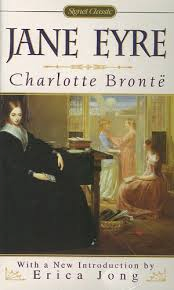
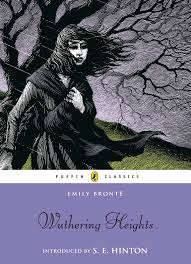
Ultimately I found the alternating narration way too confining. It didn’t seem fair to the reader to leave Charlotte locked in a trunk about to suffocate and then shift to Emily doing the most mundane of chores. So I switched to a third person, but let each sister own their own chapters. It worked so much better but I had to answer that pressing question, who is the main character?
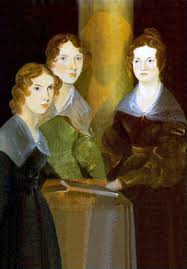
I’m the eldest in my family and I’m the one who likes to plan – so my preference was Charlotte of course. But Emily was so much more fun! And if there’s to be a romance (and in these literary mysteries there is always a hint of some love in the air) Emily seems the more likely candidate. So Emily won out by a hair – Charlotte has adventures, but Emily is the main player.
Charlotte quite reasonably resents her sister’s lack of responsibilities. And how aggravating that Emily is the sister that attracts the masculine attention that Charlotte craved. More than once Charlotte mutters, “Emily, it’s always Emily.”
My editor and I liked this as a title because it sounds so romantic – but really it’s the lament of the plainer, older, duller sister. It’s always Emily!
Thanks for reading. I’d love to have you visit at www.michaelamaccoll.com , or follow me on Twitter at @MichaelaMacColl or check out Author Michaela MacColl on Facebook.
Read an excerpt at http://www.scribd.com/doc/198642656/Always-Emily
CCSS-Aligned Discussion/Teacher’s Guide at http://www.chroniclebooks.com/landing-pages/pdfs/AlwaysEmily_DiscussionGuide_FINAL.pdf
Win a signed copy of Always Emily!
Leave a comment, including your email address, for a chance to win an autographed copy of Always Emily by Michaela MacColl!
TERMS AND CONDITIONS:
- By entering, you confirm you are 18 years of age or older and reside in the U.S. or Canada.
- Winner will be notified by email and have 72 hours to claim the prize.
- Prize will be shipped directly to the winner by the author or her representative.
- This blog is not responsible for items lost or damaged in shipment.
- Void where prohibited.



By: Kirsty,
on 3/31/2014
Blog:
OUPblog
(
Login to Add to MyJacketFlap)
JacketFlap tags:
letters,
emily bronte,
OWC,
janet gezari,
brontë,
oxford world's classics,
english literature,
victorian literature,
struggle—resigned—trusting,
death—emily’s,
now—anne,
mistaken—anne,
wise—perfect—merciful,
scarbro’,
charlotte bronte,
British,
consumption,
Humanities,
*Featured,
anne bronte,
UKpophistory,
charlotte bronte letters,
History,
Literature,
Biography,
Add a tag

On 31 March 1855 – Easter Sunday – Charlotte Brontë died at Haworth Parsonage. She was 38 years old, and the last surviving Brontë child. In this deeply moving letter to her literary advisor W. S. Williams, written on 4 June 1849, she reflects on the deaths of her sisters Anne and Emily.
My dear Sir
I hardly know what I said when I wrote last—I was then feverish and exhausted—I am now better—and—I believe—quite calm.
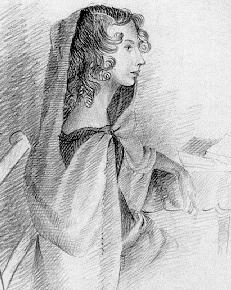
Anne Brontë by Charlotte Brontë, 1845
You have been informed of my dear Sister Anne’s death—let me now add that she died without severe struggle—resigned—trusting in God—thankful for release from a suffering life—deeply assured that a better existence lay before her—she believed—she hoped, and declared her belief and hope with her last breath.—Her quiet Christian death did not rend my heart as Emily’s stern, simple, undemonstrative end did—I let Anne go to God and felt He had a right to her.
I could hardly let Emily go—I wanted to hold her back then—and I want her back hourly now—Anne, from her childhood seemed preparing for an early death—Emily’s spirit seemed strong enough to bear her to fullness of years—They are both gone—and so is poor Branwell—and Papa has now me only—the weakest—puniest—least promising of his six children—Consumption has taken the whole five.
For the present Anne’s ashes rest apart from the others—I have buried her here at Scarbro’ to save papa the anguish of return and a third funeral.
I am ordered to remain at the sea-side a while—I cannot rest here but neither can I go home—Possibly I may not write again soon—attribute my silence neither to illness nor negligence. No letters will find me at Scarbro’ after the 7th. I do not know what my next address will be—I shall wander a week or two on the east coast and only stop at quiet lonely places—No one need be anxious about me as far as I know—Friends and acquaintance seem to think this the worst time of suffering—they are sorely mistaken—Anne reposes now—what have the long desolate hours of her patient pain and fast decay been?
Why life is so blank, brief and bitter I do not know—Why younger and far better than I are snatched from it with projects unfulfilled I cannot comprehend—but I believe God is wise—perfect—merciful.
I have heard from Papa—he and the servants knew when they parted from Anne they would see her no more—all try to be resigned—I knew it likewise and I wanted her to die where she would be happiest—She loved Scarbro’—a peaceful sun gilded her evening.
Yours sincerely
C. Brontë
The Oxford World’s Classics edition of Charlotte Brontë’s Selected Letters is edited by Margaret Smith, with an introduction by Janet Gezari.
For over 100 years Oxford World’s Classics has made available the broadest spectrum of literature from around the globe. Each affordable volume reflects Oxford’s commitment to scholarship, providing the most accurate text plus a wealth of other valuable features, including expert introductions by leading authorities, voluminous notes to clarify the text, up-to-date bibliographies for further study, and much more. You can follow Oxford World’s Classics on Twitter, Facebook, or here on the OUPblog. Subscribe to only Oxford World’s Classics articles on the OUPblog via email or RSS.
Subscribe to the OUPblog via email or RSS.
Subscribe to only literature articles on the OUPblog via email or RSS.
Image credit: Anne Brontë – drawing in pencil by Charlotte Brontë, 1845. Public domain, via Wikimedia Commons.
The post “A peaceful sun gilded her evening” appeared first on OUPblog.

Today's vintage book is not a children's book, (It could certainly be read by a teenager though) but the classic story of Wuthering Heights. I'm showing this book because of the phenomenal wood engravings by the uber talented Fritz Eichenberg.

By: Kirsty,
on 1/13/2010
Blog:
OUPblog
(
Login to Add to MyJacketFlap)
JacketFlap tags:
Literature,
fiction,
UK,
snow,
Oxford,
A-Featured,
emily bronte,
Prose,
OWC,
charles dickens,
edith wharton,
oxford world's classics,
george eliot,
louisa m alcott,
Add a tag

By Kirsty McHugh, OUP UK
Oxford, over the last week, has been hit with some of the worst snow it has seen in about 30 years. It’s just the sort of weather that makes a girl want to curl up in front of the fire of an evening, reading a good book. But which books should you be reading if you want your fiction to be as snowy as the outside world? Here are a few suggestions.
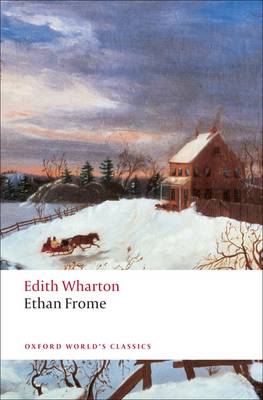 Ethan Frome by Edith Wharton
Ethan Frome by Edith Wharton
Set against the bleak winter landscape of New England, Ethan Frome tells the story of a poor farmer, lonely and downtrodden, his wife Zeena, and her cousin, the enchanting Mattie Silver.
“Ethan Frome drove in silence, the reins loosely held in his left hand, his brown seamed profile, under the helmet-like peak of the cap, relieved against the banks of snow like the bronze image of a hero. He never turned his face to mine, or answered, except in monosyllables, the questions I put, or such slight pleasantries as I ventured. He seemed part of the mute, melancholy landscape, and incarnation of its frozen woe, with all that was warm and sentient in him fast bound below the surface; but there was nothing unfriendly in his silence.”
The Adventures of Sherlock Holmes by Arthur Conan Doyle
Snow proves to be crucial when Sherlock Holmes solves the mystery of “The Beryl Coronet”. You can read more about The Adventures of Sherlock Holmes in this post.
“Fairbank was a good-sized square house of white stone, standing back a little from the road. A double carriage sweep, with a snow-clad lawn, stretched down in front to the two large iron gates which closed the entrance. On the right side was a small wooden thicket which led into a narrow path between two neat hedges stretching from the road to the kitchen door, and forming the trademen’s entrance.”
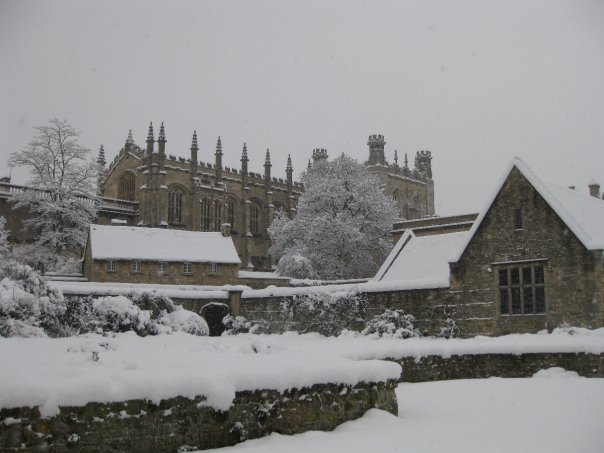
Bleak House by Charles Dickens
Bleak House defies a single description. It is a mystery story, in which Esther Summerson discovers the truth about her birth and her unknown mother’s tragic life. It is a murder story, which comes to a climax in a thrilling chase, led by one of the earliest detectives in English fiction, Inspector Bucket. And it is a fable about redemption, in which a bleak house is transformed by the resilience of human love.
“Upon the least noise in the house, which is kept hushed, his hand is at the pencil. The old housekeeper, sitting by him, knows what he would write and whispers, ‘No, he has not come back yet, Sir Leicester. It was late last night when he went. He has been but a little time gone yet.’
He withdraws his hand, and falls to looking at the sleet and snow again,until they seem, by being long looked at, to fall so thick and fast, that he is obliged to close his eyes for
Tell me, tell me, smiling child,
What the past is like to thee ?
'An Autumn evening soft and mild
With a wind that sighs mournfully.’
Tell me, what is the present hour ?
'A green and flowery spray
Where a young bird sits gathering its power
To mount and fly
away.’
And what is the future, happy one ?
'A sea beneath a cloudless sun ;
A mighty, glorious, dazzling sea
Stretching into infinity.’
-Emily Brontë-
poetry friday roundup at jama rattigan's alphabet soup

By: Vivian,
on 5/8/2007
Blog:
Critical Literacy in Practice - CLIP Podcast
(
Login to Add to MyJacketFlap)
JacketFlap tags:
music,
Racism,
Stereotyping,
multimedia text set,
museum,
injustice,
anacostia,
india arie,
jim crow,
Natasha Anastasia Tarpley,
paper dolls,
Children's Books,
Podcast,
Add a tag
In This Show:
A multimedia text set by Andrea Spann
Jim Crow Laws
The Civil Rights Movement
Two Hundred Years of Black Paper Dolls:
The Collection of Arabella Grayson at the Anacostia Community Museum
I am not my hair by India Arie
I Love My Hair by Natasha Anastasia Tarpley
Thanks To:
Andrea Spann for [...]
 The team at BBC Culture asked 82 book critics to name their favorite British fiction books. All of the participants who were polled do not reside in the United Kingdom; they come from the United States, continental Europe, Asia, Africa, and Australia.
The team at BBC Culture asked 82 book critics to name their favorite British fiction books. All of the participants who were polled do not reside in the United Kingdom; they come from the United States, continental Europe, Asia, Africa, and Australia.




















Yes! I have this and a matching Jane Eyre that he illustrated. (I was very excited when I found them.)
I have the Jane Eyre book too. I felt that same when I found mine, though it's been awhile, I still remember.